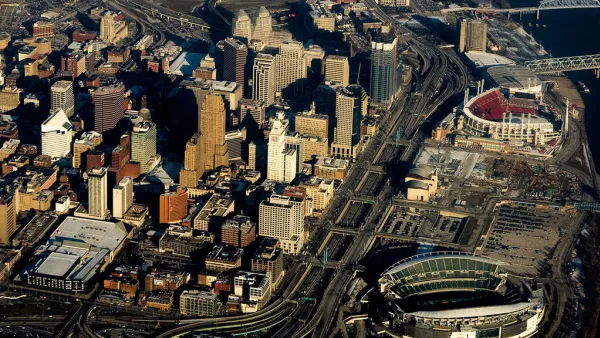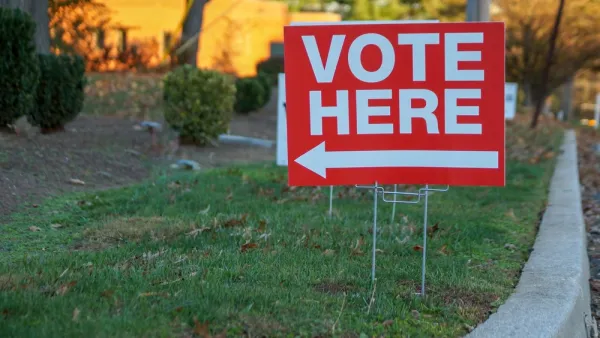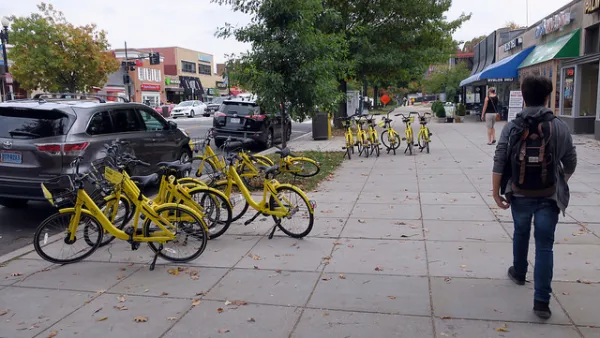Bike-share is continuing its march towards world domination, with seemingly every large Midwestern American city now jumping on the bike lending bandwagon, reports Angie Schmitt.
Pittsburgh, Columbus, Indianapolis, Cleveland, Detroit, Cincinnati, Milwaukee, Chicago, Minneapolis - the list of Midwestern cities that have already, or are hoping to, establish bike-share systems is a testament to the incredible popularity of a concept that's only found its footing in the U.S. in the past few years. Schmitt examines the trend, and the ways in which Midwestern cities have learned from, and adapted, the approach to building such systems undertaken by more dense pioneers.
"Midwestern cities have been inspired by some of the more spectacular examples on the coasts, according to Eric Rogers, executive director of BikeWalkKC, the nonprofit organization that manages Kansas City’s bike-share system. Kansas City was a little ahead of the pack when it launched Kansas City B-Cycle, with 200 bikes at 12 stations, last summer."
“The last few years a lot of cities, especially in the Midwest, have seen good examples from places like Chicago and Portland and New York and D.C. of a lot of innovative facilities that are out there: cycle tracks, bike boxes, bike-sharing,” he said. “There’s so much more knowledge out there now that it’s easier to develop a solution and pursue it.”
"Midwestern metros have also been lured by the availability of new technology and the assistance of companies like B-Cycle and Alta Bikes that make installing these systems relatively easy and affordable," Schmitt adds. "But these new additions to the bike-share family have taken a markedly different approach than some large coastal cities."
“A lot of the Midwest cities started kind of small, maybe with 10 or 12 stations, and they’re growing more organically over time,” Rogers said. “It seems like a lot of the larger coastal cities have taken more of a big-bang approach.”
FULL STORY: Midwestern Cities Race to Adopt, and Grow, Bike-Share

Analysis: Cybertruck Fatality Rate Far Exceeds That of Ford Pinto
The Tesla Cybertruck was recalled seven times last year.

National Parks Layoffs Will Cause Communities to Lose Billions
Thousands of essential park workers were laid off this week, just before the busy spring break season.

Retro-silient?: America’s First “Eco-burb,” The Woodlands Turns 50
A master-planned community north of Houston offers lessons on green infrastructure and resilient design, but falls short of its founder’s lofty affordability and walkability goals.

Test News Post 1
This is a summary

Analysis: Cybertruck Fatality Rate Far Exceeds That of Ford Pinto
The Tesla Cybertruck was recalled seven times last year.

Test News Headline 46
Test for the image on the front page.
Urban Design for Planners 1: Software Tools
This six-course series explores essential urban design concepts using open source software and equips planners with the tools they need to participate fully in the urban design process.
Planning for Universal Design
Learn the tools for implementing Universal Design in planning regulations.
EMC Planning Group, Inc.
Planetizen
Planetizen
Mpact (formerly Rail~Volution)
Great Falls Development Authority, Inc.
HUDs Office of Policy Development and Research
NYU Wagner Graduate School of Public Service




























